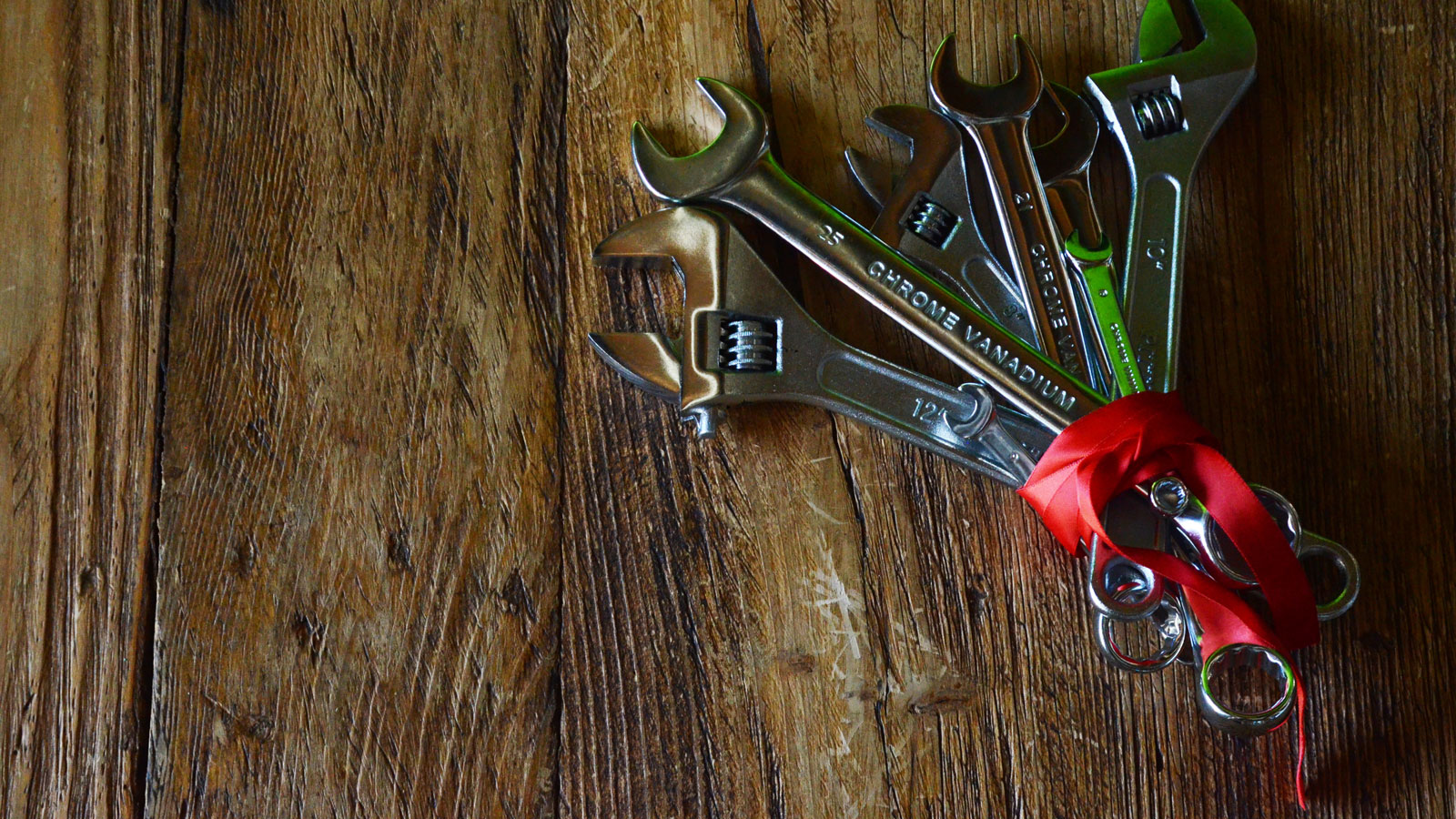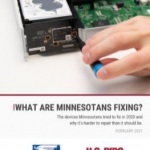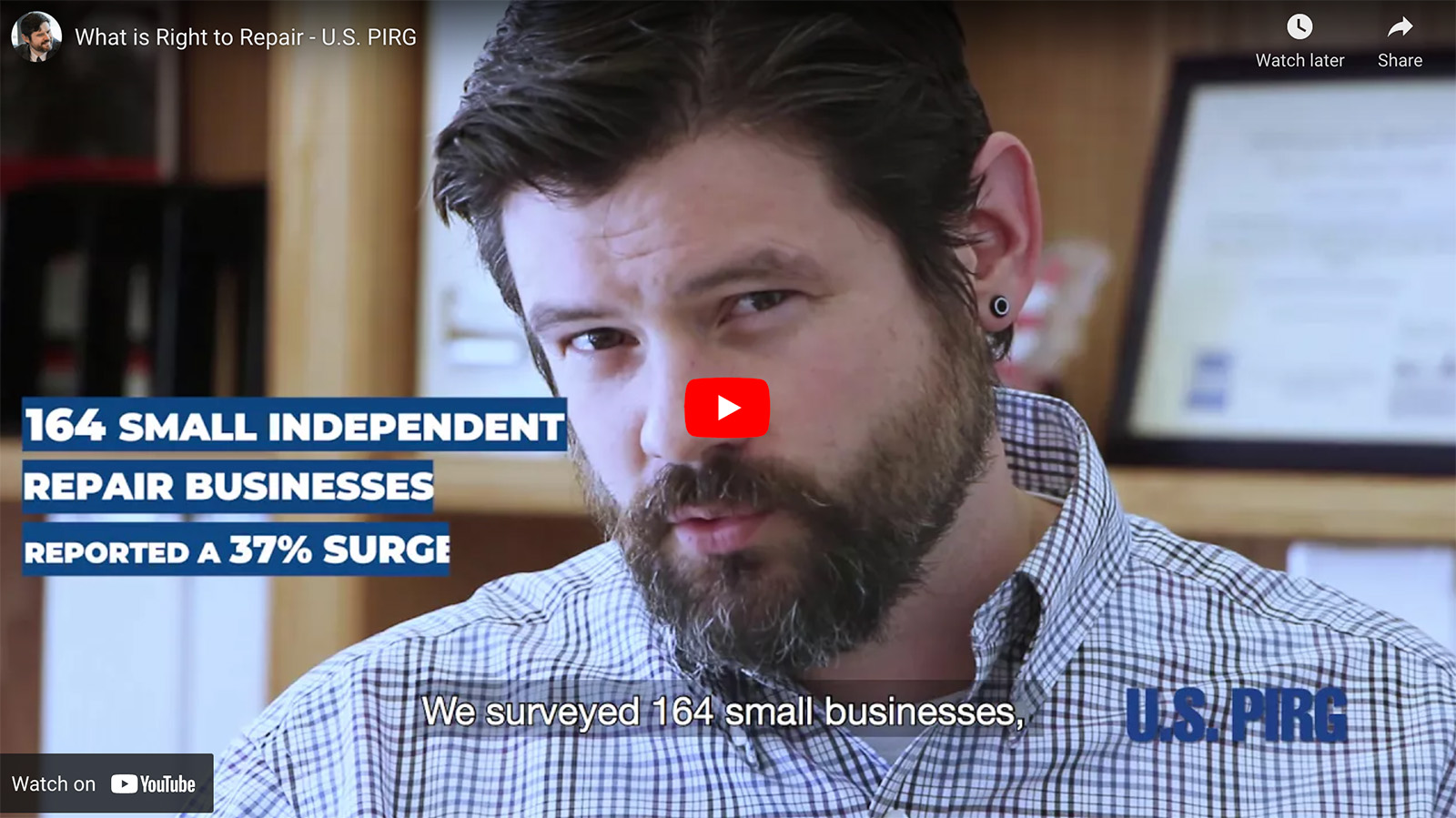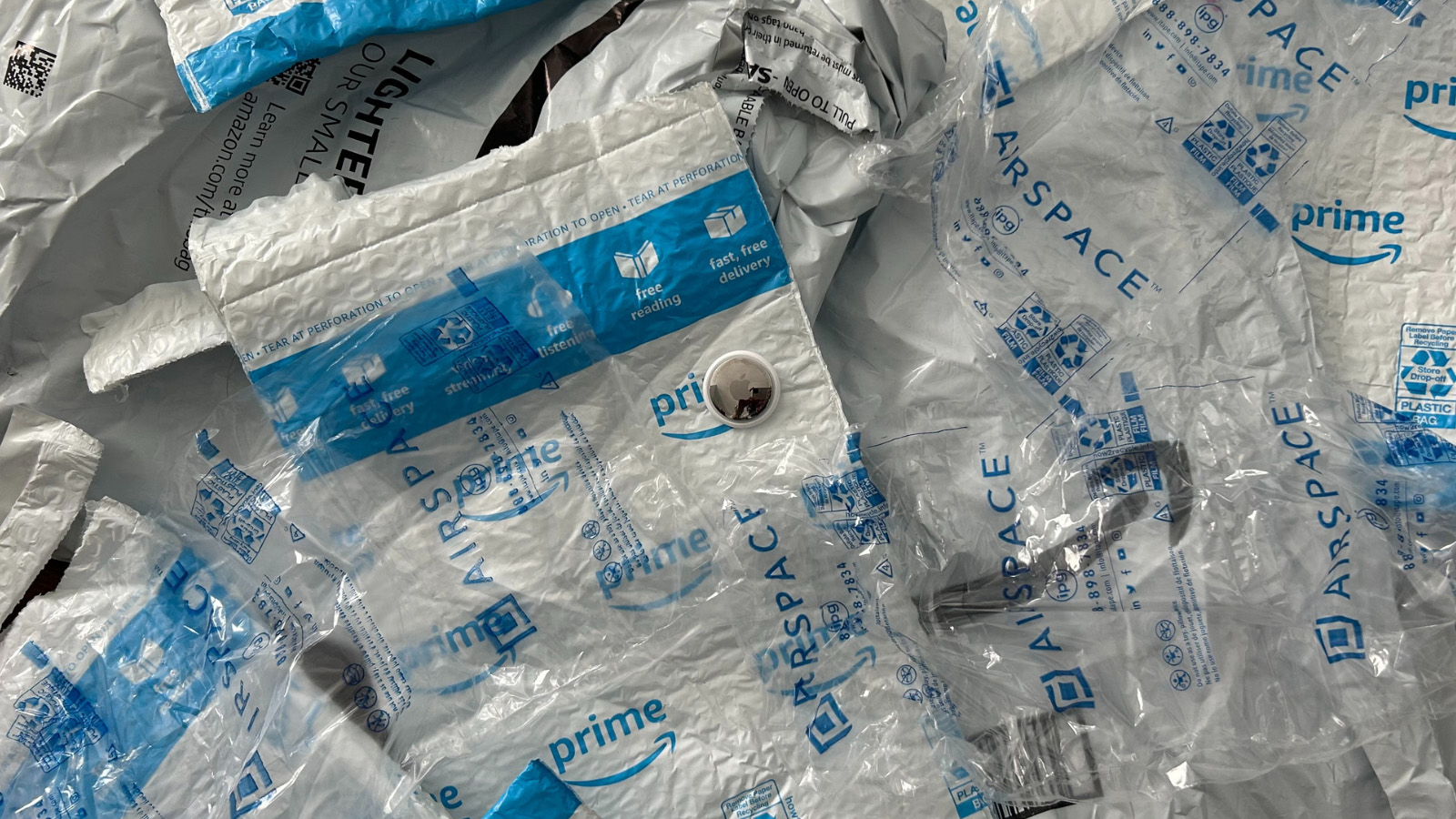
What Are Minnesotans Fixing?
The devices Minnesotans tried to fix in 2020 and why it’s harder to repair than it should be.
Repair is really popular, but makers of electronics keep making it harder than it should be. 948,000 Minnesotans visited the popular repair website, iFixit.com, from November 2019 to November 2020. They tried to fix everything from laptops to gaming consoles. For the majority of the devices Minnesotans tried to fix, however, they faced significant barriers.
Downloads
The devices Minnesotans tried to fix in 2020 and why it’s harder to repair than it should be.
Environment Minnesota Research and Policy Center

Repair is really popular, but makers of electronics keep making it harder than it should be. 948,000 Minnesotans visited the popular repair website, iFixit.com, from November 2019 to November 2020. They tried to fix everything from laptops to gaming consoles. For the majority of the devices Minnesotans tried to fix, however, they faced significant barriers.
Our findings include:
-
Minnesotans throw away over 6,500 cell phones every day, creating a big, unecessary e-waste problem for recyclers and other waste processors.
-
Battery replacements and repairs were the most common problem Minnesotans were trying to fix. 22 percent of all page views were for battery fixes.
-
Mostly, Minnesotans were trying to replace laptop batteries (28 percent of all battery fixes) and cell phone batteries (18 percent of all battery fixes).
-
Manufacturers impose barriers to replacing batteries in their products, including withholding instructions for safe removal, using proprietary screws, excessive adhesives, and software-locked parts.
-
The COVID-19 pandemic caused supply chain disruptions and store/factory closures, which made it more difficult to get certain electronics, underscoring the need for repair. Nationally, there was a shortage of 5 million computers this summer as schools could not find internet connected devices for their students’ online learning.
Batteries for laptops and cell phones were the top issue Minnesotans were trying to fix in 2020. They are searching for the tools and know-how to replace batteries themselves, but electronics manufacturers are making it harder than it should be. Access to the replacement batteries, specialty tools, and repair information that Minnesotans need would help prevent fires at recycling facilities, and electronic waste that could easily be reused. Minnesotans want to fix and replace their lithium ion batteries — they should be able to do so.
Topics
Find Out More


Fixed for the Holidays

What is Right to Repair?

